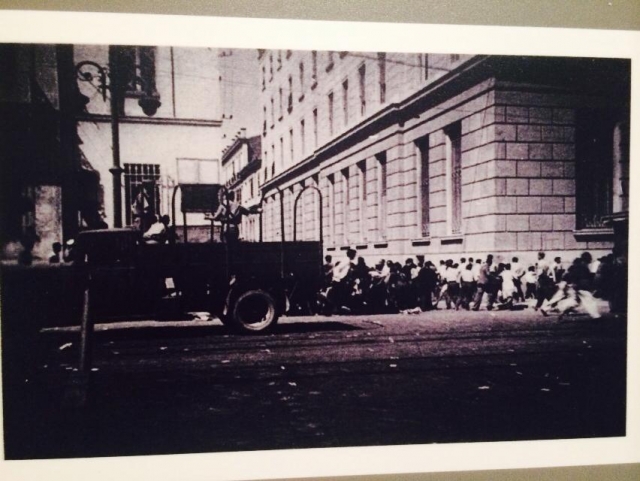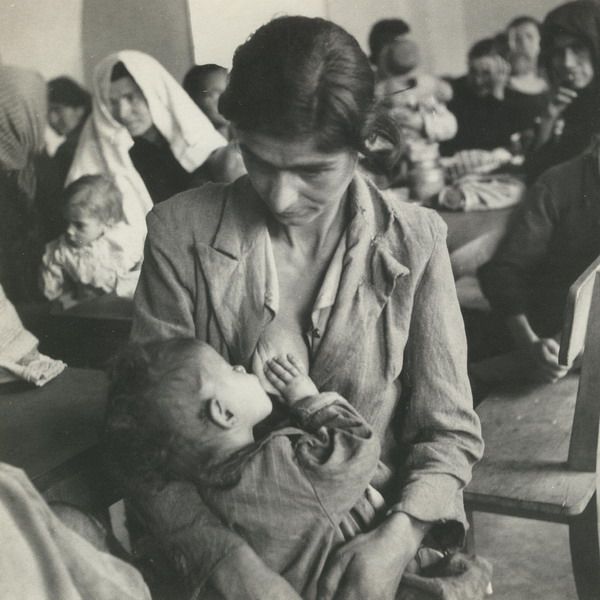Greek soldiers at the front during the Italo-Greek war
Anastasia Balezdrova
On 28 October, Greece celebrates its second most important national holiday known as OXI Day (NO Day - author's note.). Prime Minister at the time and dictator Ioannis Metaxas said no in response to the ultimatum by Italy to Athens under which it had to allow the Italian army to freely cross the Greek-Albanian border. The allies of Nazi Germany aimed at entering Greece to occupy strategic positions in Greek ports, airports and other locations, and to prepare for their further advance towards Africa.
Metaxas’ refusal was actually a declaration of war on the part of Greece. He responded to the Italian Ambassador to Athens, who presented him with the ultimatum, using the phrase "Alors, c'est la guerre" (This means war - author’s note).
Two hours later, the Italian army invaded the Epirus region and Greece officially was at war to protect itself from the invasion. The Italo-Greek war is divided into two parts. Only Greece and Italy waged war in the first part whereas the German, Italian and Bulgarian army that joined the war on 20 April 1941 occupied the country in the second part and divided it into three occupation zones.

22 July 1943, German soldiers dispersed a peaceful demonstration in central Athens against the Bulgarian occupation of northern Greece, a photo from the exhibition "Athens during the years of German occupation" in the municipal gallery of Athens.
Athens was in the German zone of influence and one of the most painful memories of this period is the mass starvation of the population. According to historians, there were 40-45,000 victims of hunger in Athens in the autumn and winter of 1941-1942, although it is debatable if those who suffered from vitamin deficiency and lack of food and died from diseases could be considered victims of the Great Famine as well.
The situation in Athens was so severe that hundreds of dead bodies began to appear in the streets. They were loaded on wheelbarrows and buried in common graves, which is evidenced by the stories of witnesses of the events.
"Hunger, speculation. Properties were lost for a bottle of olive oil at that time. Things were so bad that some people were eating dog meat. They gathered the dead from the streets and brought them to cemetery N 3, where there was a common grave," residents of the Athens district of Kipseli told the members of the local group for collecting oral testimonies.
"Many people suffered from vitamin deficiency. I remember that I had swollen up, not to mention the childhood diseases that we suffered from without having access to medicines. There was cooked meat at home once, which had a strange scum and very unusual taste in general. Later we learnt that the bears that could be found in the woods near the neighbourhood of Pankrati before the war had disappeared. There was no wheat bread. I remember that some were selling bread made with carob flour," said a resident of the wealthy district of Kolonaki, continuing,
"No trade was carried out, only speculation. People paid for a few products with sovereigns and expensive jewelry. In Kolonaki the owners of a dairy and a bakery capitalized on food."

Food distribution in an Athenian street, Photo: Voula Papaioannou
This exploitation of Greeks by Greeks changed the map of their relationships. "My parents stopped greeting people who they knew before the war because they had grown rich during the occupation," said another witness. The same was true for Germany-friendly Greeks who became allies of the occupiers in many cases. "Before the war there were many and few after it. We stopped talking to them."
Witnesses from Kipseli state that the residents began to join the resistance organizations, mainly on the side of the Communist Party. They say they were the first to take action against hunger by creating the organization "National Solidarity". "In fact they gathered food from the countryside and obtained aid from international organizations, distributing it among residents in the fairest possible way. At that time, 1.5 million people lived in Athens and the total population of Greece was 7.5 million.

Nursing in the milk distribution centre, Athens 1942 - 1943, photo: Voula Papaioannou
The occupiers themselves were also concerned about starvation and its consequences, although they had imposed control over the production and trade of foodstuffs in order to prevent the supplies to the resistance organizations that had logistical support from the United Kingdom. Greek historians point out that, during the occupation, the Bulgarian authorities in northern Greece did not allow any distribution of food to the other two occupation zones where the large urban centres were located.
"As early as the month of May 1941 it became clear that the coming winter would be extremely difficult. The German deputy in Thessaloniki, Altenburg, informed on 7 May the German Foreign Minister and the government that starvation would acquire enormous proportions if the issue of food distribution were not resolved.